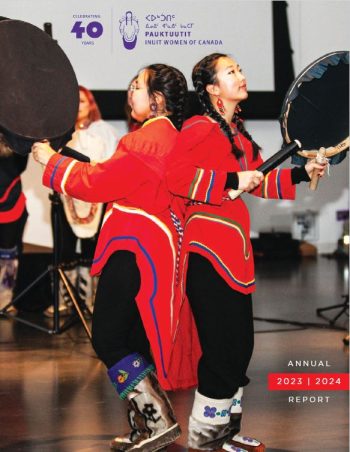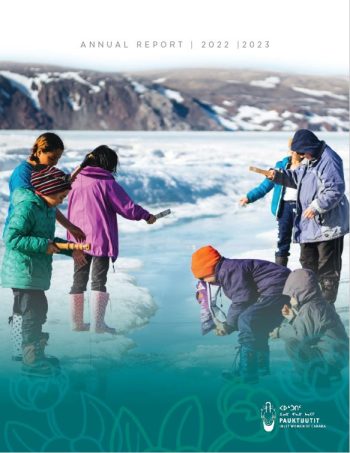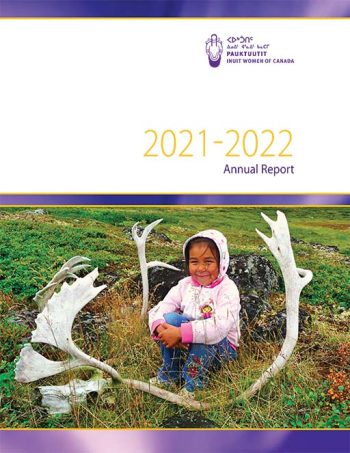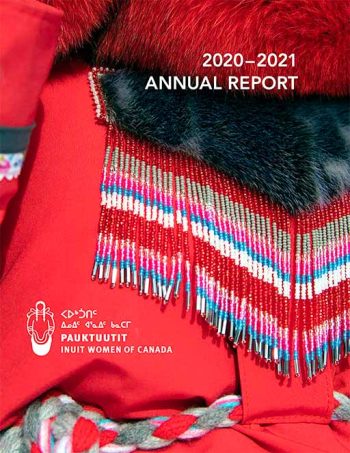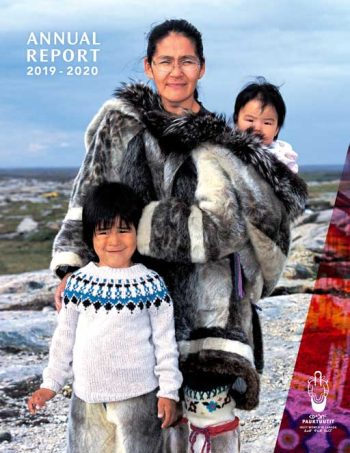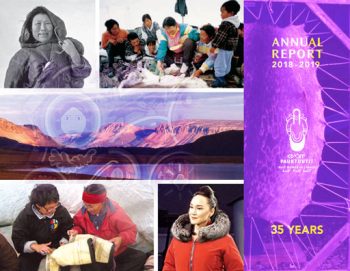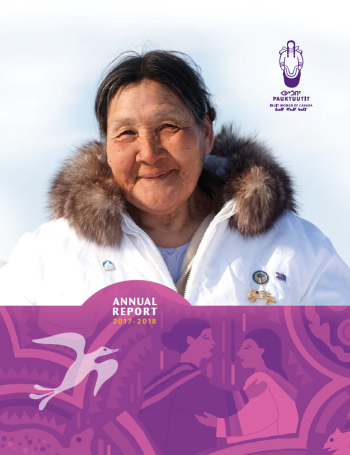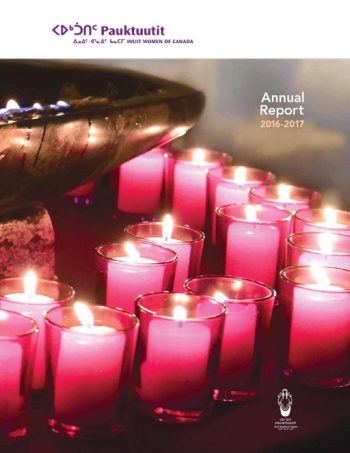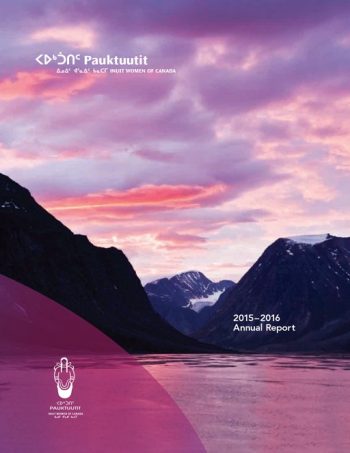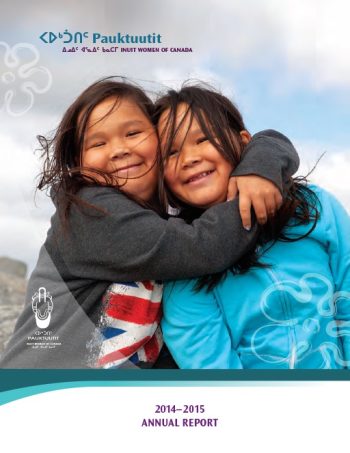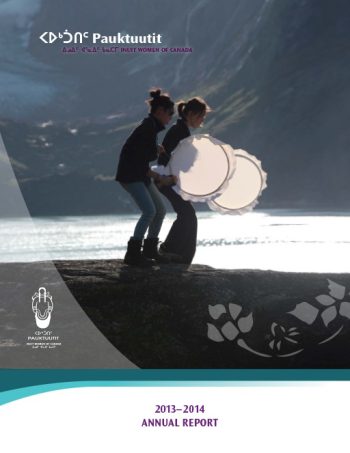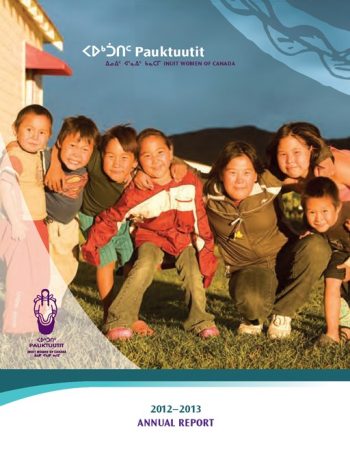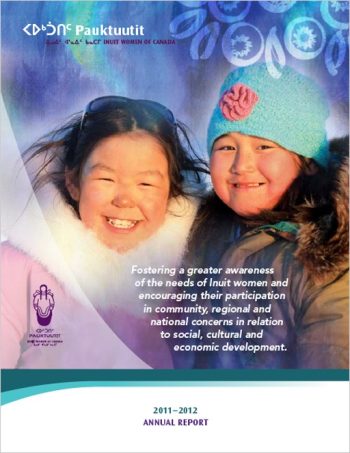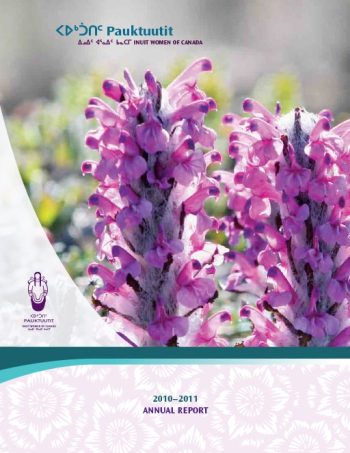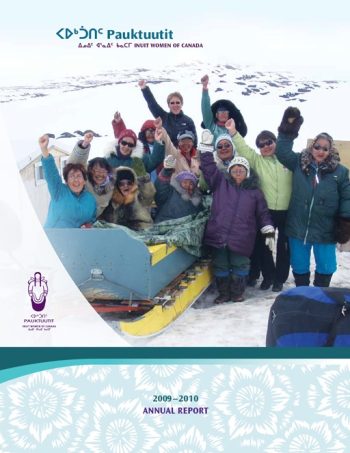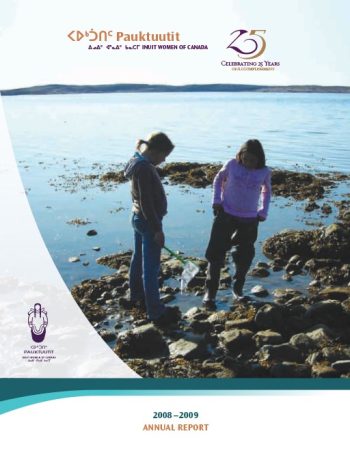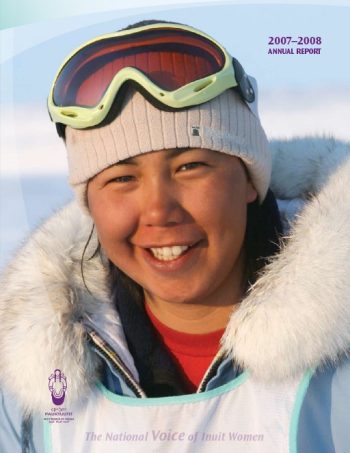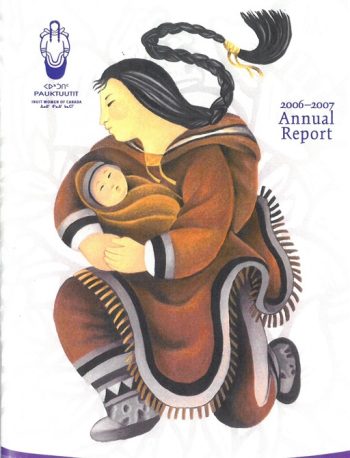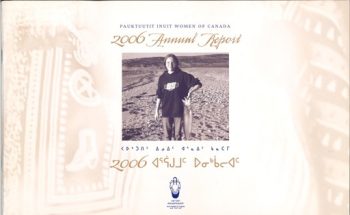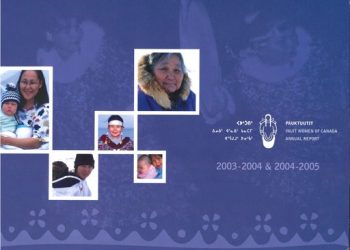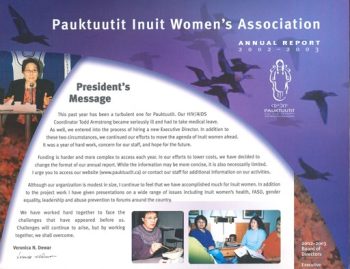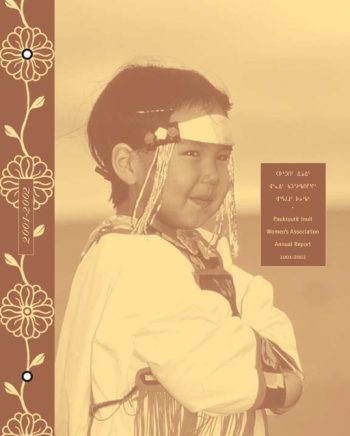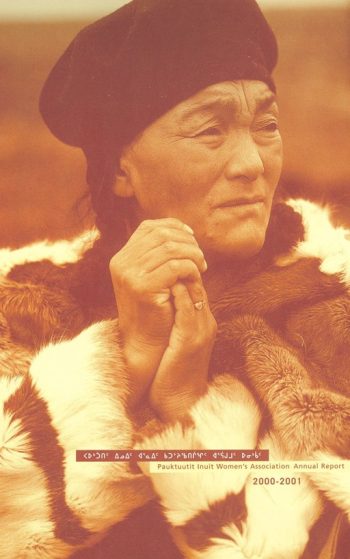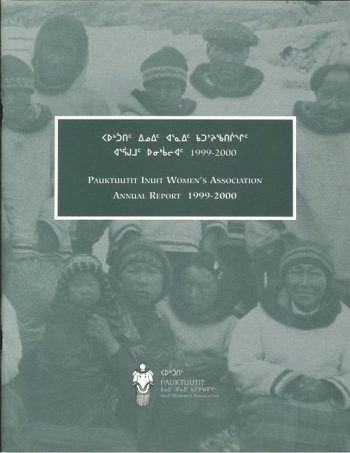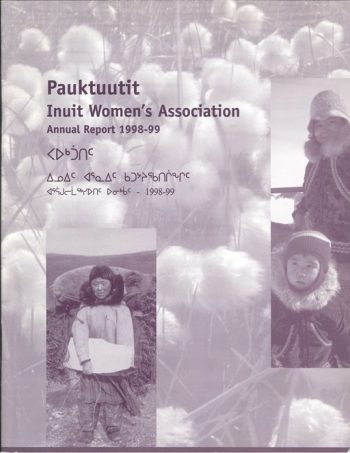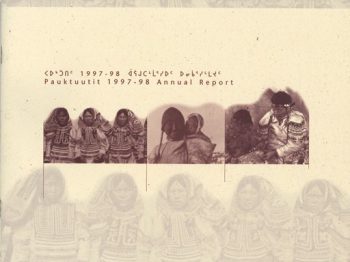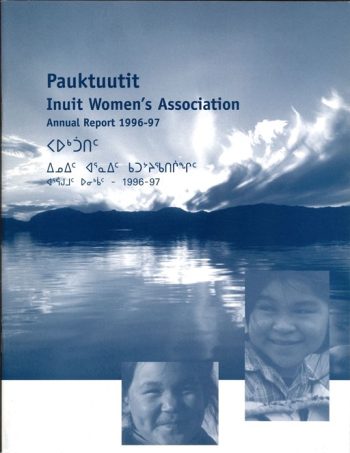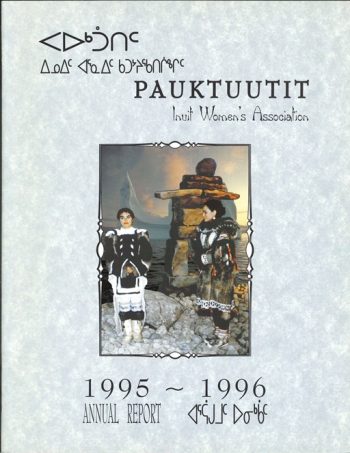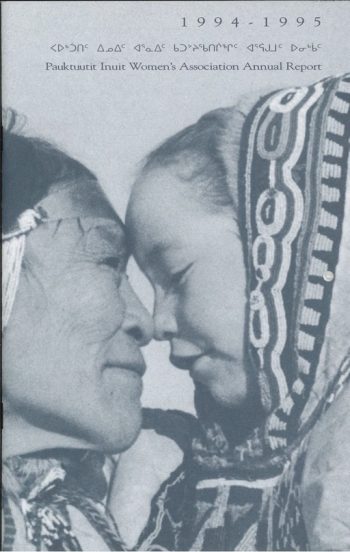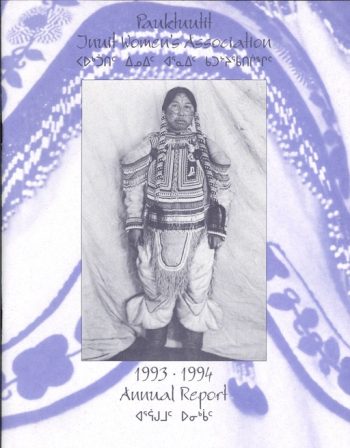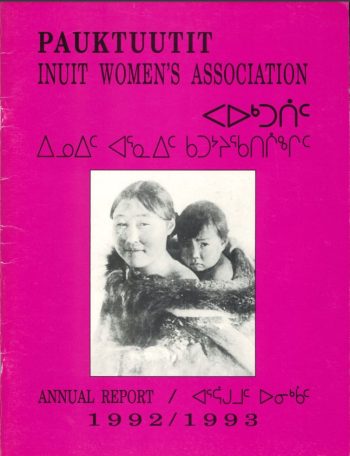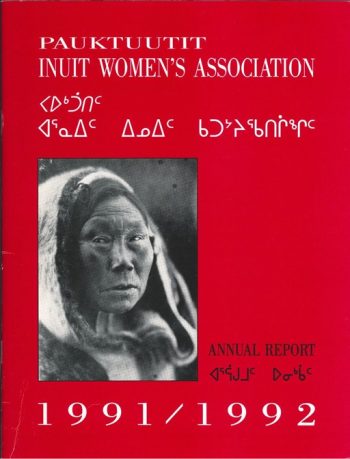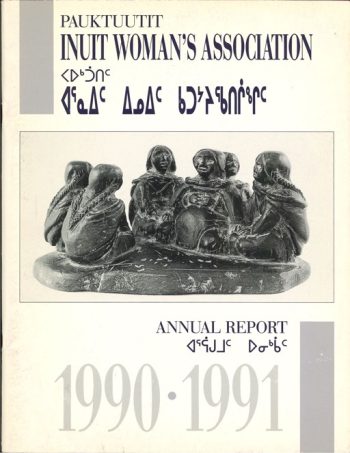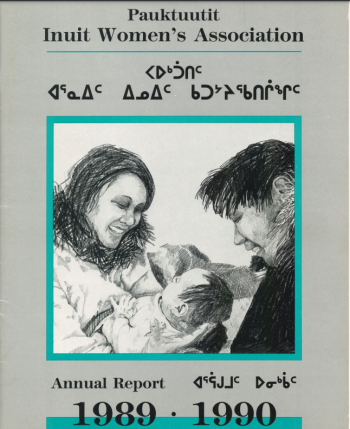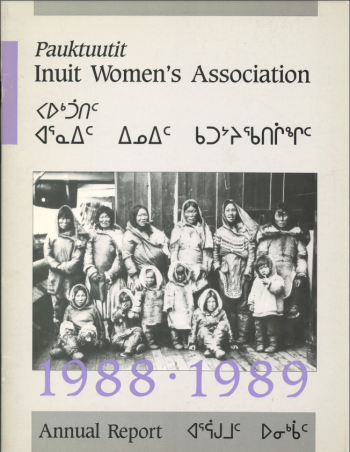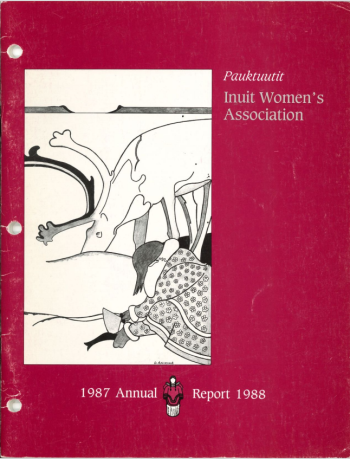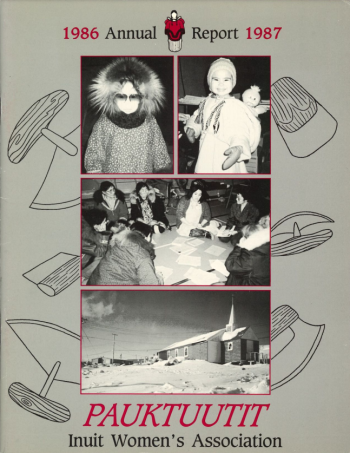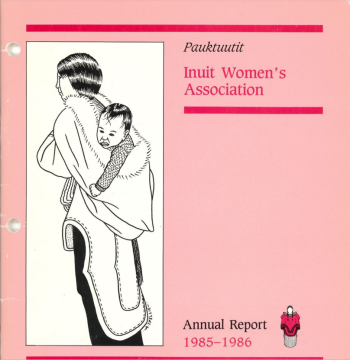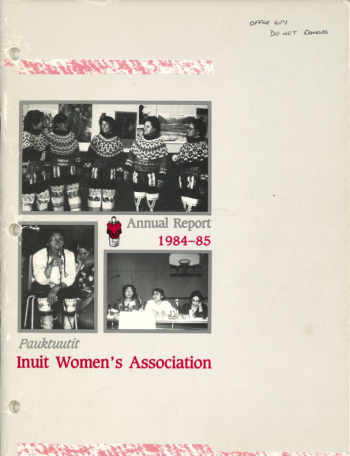Publications
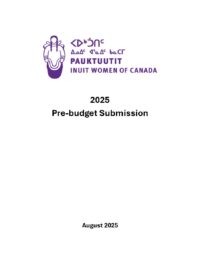
2025 Pre-budget Submission Pauktuutit Inuit Women of Canada
Investing in Inuit Communities is Investing in Canada’s Shared Future
To uphold the inherent rights and dignity of Inuit women, gender-diverse Inuit, their families, and their communities, Pauktuutit Inuit Women of Canada calls on the federal government to move beyond promises and take concrete, sustained action to support Inuit-led solutions that strengthen our daily lives, protect our futures, and build a just and united economy for our people.
Pauktuutit recommends that the federal government:
- Improve access to affordable housing, safe spaces, and second-stage housing for Inuit women fleeing violence.
- Improve access to culturally specific health services and healing programs.
- Support economic development activities led by Inuit women in urban regions and in Inuit Nunangat.
- Empower Inuit women’s leadership and close the gender equality gap for Inuit women by ensuring an Inuit-Specific Gender-based Analysis Plus (GBA+) framework is applied to all legislative, policy and program decisions that impact Inuit women and gender-diverse Inuit
- Support Inuit-led solutions to improve the safety and security of Inuit women, gender-diverse Inuit, their families and their communities.
- Provide further supports toward the strengthening of the Inuit Child First Initiative and Inuit-specific child welfare solutions developed and informed by Inuit women and Inuit communities.
Year Published October 2025
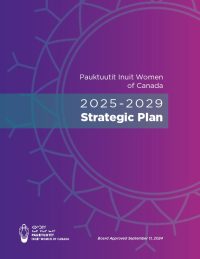
Pauktuutit 2025-2029 Strategic Plan
Inuit women and gender-diverse Inuit across Canada need and deserve an organization that listens to their needs and works toward solutions that address real and emerging issues. Pauktuutit is this organization – we will create a safe space for celebrating and preserving Inuit culture, language, and traditions. It is important to have a strong advocate to support both national and local efforts that recognize the ongoing impacts of colonialism on Inuit. This includes focusing on reconciliation by directing resources and attention to the significant challenges faced by Inuit women, girls and gender-diverse Inuit.
This Strategic Plan outlines our mission, vision, priorities, and goals for the next five years. It explains the steps we will take to achieve these goals. The plan also reflects on the past while considering the present and future. It is designed to be both hopeful and practical, showing our commitment to being transparent and accountable to our clients, partners, funding agencies, and the Inuit who we serve and represent.
Year Published October 2024
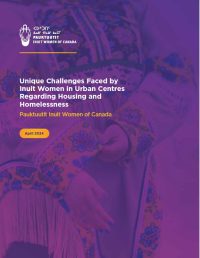
Unique Challenges Faced by Inuit Women in Urban Centres Regarding Housing and Homelessness
Pauktuutit initiated this project to better understand the unique challenges related to housing and homelessness for Inuit women in urban centres. This work sought to explore how urban Inuit women deal with housing challenges in southern Canadian urban centres and to understand the unique obstacles they encounter. The research was conducted following the principles of Inuit Qaujimuituqangiit, Pauktuutit’s Inuit‑Specific Gender‑based Analysis Plus (GBA+) framework, intersectionality, and distinctions-based understandings.
Year Published October 2024
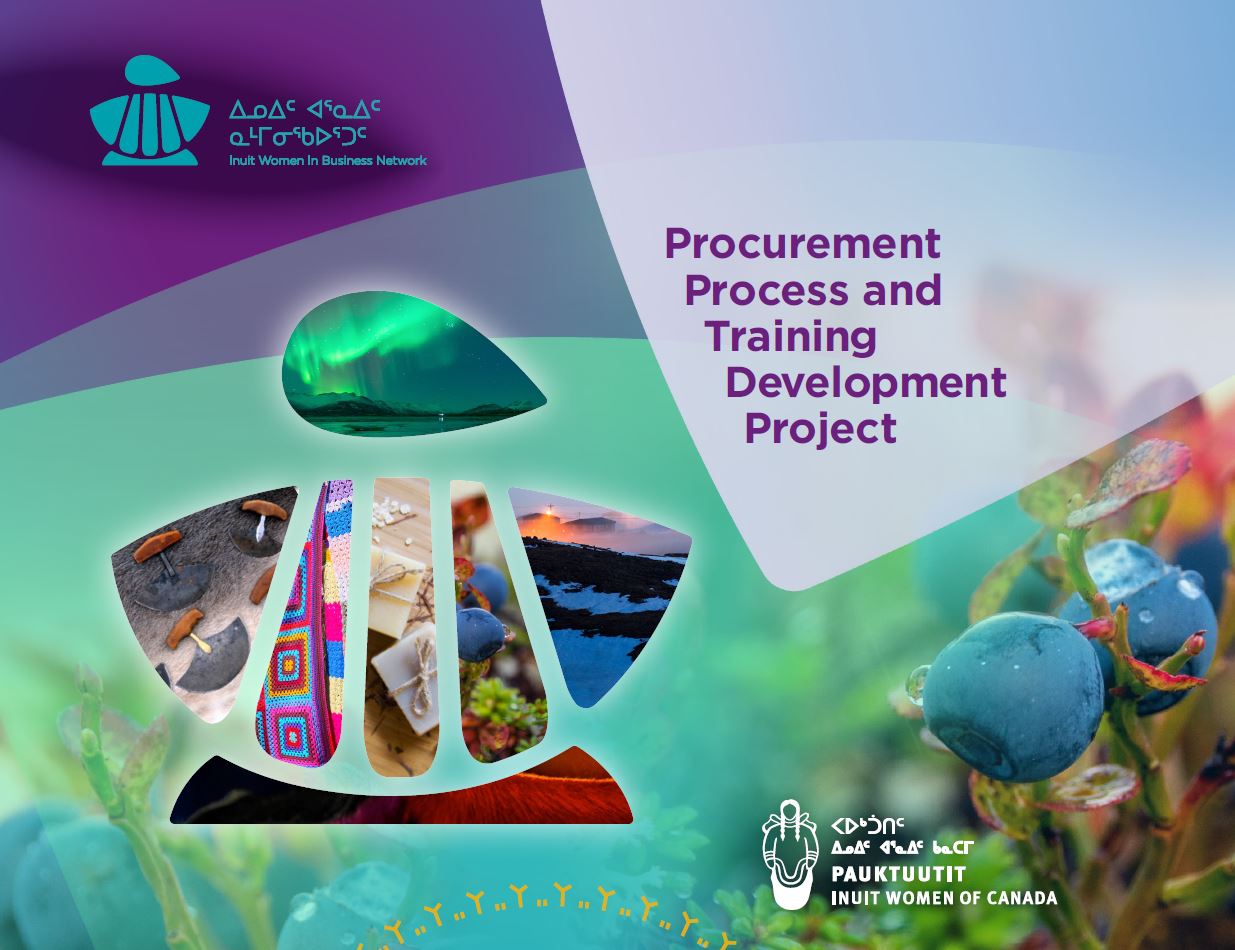
Procurement Process and Training Development Project
This comprehensive report, developed through extensive engagement with Inuit business owners, supportive organizations, and contracting agencies, aims to enhance supports for Inuit women in business and foster a thriving Inuit business community. It provides valuable insights into the challenges and opportunities faced by Inuit women in accessing contracting opportunities and navigating procurement processes, offering a nuanced understanding of their needs and preferences through the development of an Inuit-specific methodology framework.
Year Published July 2024
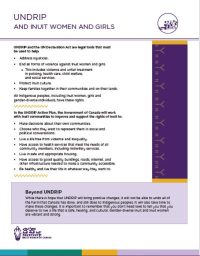
UNDRIP and Inuit Women
The “United Nations Declaration on the Rights of Indigenous People” defines the rights that Indigenous peoples around the world deserve. UNDRIP is not a law, but it tells the Government of Canada how to make sure its laws do not harm Indigenous peoples and do protect their rights.
Pauktuutit has created Inuit specific resources to empower Inuit women, girls, and gender diverse to stand up for their rights.
Year Published June 2024
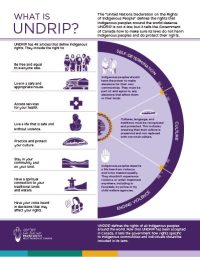
What is UNDRIP
The “United Nations Declaration on the Rights of Indigenous People” defines the rights that Indigenous peoples around the world deserve. UNDRIP is not a law, but it tells the Government of Canada how to make sure its laws do not harm Indigenous peoples and do protect their rights.
Pauktuutit has created Inuit specific resources to empower Inuit women, girls, and gender diverse to stand up for their rights.
Year Published June 2024
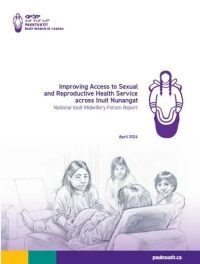
Improving Access to Sexual and Reproductive Health Service across Inuit Nunangat
The Pauktuutit Inuit Women of Canada has prioritized the expansion of Inuit midwifery services for Inuit women and gender-diverse Inuit. To initiate systemic change, Pauktuutit convened a stakeholder gathering in partnership with the National Council of Indigenous Midwives, supported by funding from Indigenous Services Canada. We hosted a virtual National Inuit Midwifery Forum on the afternoons of March 28-30, 2023, to raise awareness about the challenges faced by Inuit, the role of Inuit midwives, the importance of culturally informed midwifery services, and the need for a rights-based framework to support the return and integration of Inuit midwifery.
This report summarizes the proceedings and outcomes of the National Inuit Midwifery Forum. It is part of ongoing efforts to develop a National Inuit Midwifery Framework, based on the belief that sexual and reproductive health are inherent human rights, and that Inuit are entitled to high-quality, evidence-informed, and culturally safe care.
Year Published 2024
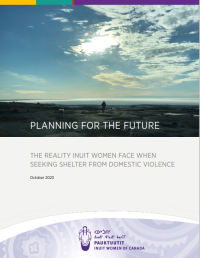
Planning for the Future: The Reality Inuit Women Face When Seeking Shelter From Domestic Violence
This study reports key findings related to the availability of shelters and safe spaces for women and gender-diverse people and their children in Inuit Nunangat and in southern urban centres, including barriers that both clients and service providers regularly encounter and opportunities to improve the quantity and quality of service. Through utilizing existing data, a survey, and key informant interviews, this project addresses significant gaps in knowledge around the realities in supports and services available for this vulnerable population.
To undertake this work, Pauktuutit Inuit Women of Canada contracted to collect and analyse survey and discussion group data to provide a better understanding of the use and access to shelters, the specific experiences of Inuit women, gender-diverse individuals, and their children, and what their needs are with respect to shelter facilities, communities, and infrastructure.
Year Published: 2024
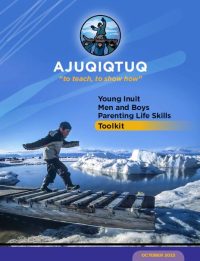
EYMB Toolkit
Ajuqiqtuq Parenting Life Skills Toolkit was developed to articulate and reinforce the benefits of preparing young Inuit men and boys to understand the skills needed to communicate and maintain healthy relationships, to learn about the importance of managing anger and stress, and to understand the value of accepting gender and sexual diversity among Inuit. Together, this knowledge will help young fathers discover practical coping skills to help them positively manage the stress and frustration that can come with parenting.
The toolkit also offers practical information on life skills grounded in Inuit Quajimajatuqangit, interpersonal communication skills in promoting gender equality and providing care and support in efforts to prevent gender-based violence. The toolkit also covers Inuit games and land-based activities for youth bonding and learning about resilience. The tools and activities provided may be adapted and utilized by other organizations, in addition to offering guidance on advocacy, needs assessment, and monitoring related efforts to engage Inuit young men and boys.
The purpose of the Ajuqiqtuq Toolkit was created to:
- Provide guidance to plan and facilitate a Parenting Life Skills Workshop for young Inuit men and boys;
- Share the ever-growing body of Inuit knowledge on mental and emotional life skills, healing, and Inuit parenting; and
- Contribute to healthy families.
Year Published October 2023
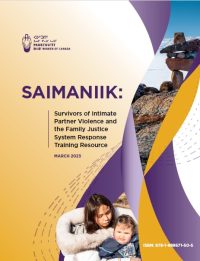
Saimaniik Toolkit
The Saimaniik Toolkit, developed by Pauktuutit Inuit Women of Canada, addresses the overrepresentation of Inuit women in experiencing intimate partner violence (IPV) and the barriers they face in accessing support. It aims to enhance understanding among justice practitioners of the historical and current contexts shaping these experiences, providing practical strategies to help Inuit communities deal with IPV.
Saimaniik Toolkit was developed with input from survivors of IPV, legal professionals, subject matter experts, community members from across Canada. It is designed to:
- Establish the needs and priorities for survivors of intimate partner violence.
- Help close the service gaps.
- Strengthen the understanding of the legal service providers of challenges and risks faced by Inuit women
Year Published March 2023
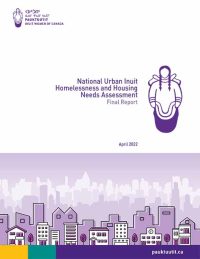
National Urban Inuit Housing and Homelessness Needs Assessment Final Report
Assisted by a consulting firm, Pauktuutit conducted an analysis of housing services available to Inuit and interviews of service providers in twelve urban centres: Ottawa, Montreal, Toronto, Winnipeg, St. John’s, Happy Valley-Goose Bay, Halifax, Regina, Edmonton, Yellowknife, Victoria, and Fredericton, and conducted interviews with non-Inuit service providers in these cities. The reports, National Urban Inuit Housing and Homelessness Needs Assessment: Research Summary and National Urban Inuit Housing and Homelessness Needs Assessment: Service Provider Interviews summarize responses of service providers in each city and offer overarching themes and observations from the interview processes. Additionally, Pauktuutit completed a review of examined international homelessness approaches and strategies to leverage those practices for the betterment of Inuit in Canada, completed a literature review focussed on the adequacy and effectiveness of homelessness programs and services for urban Inuit in Canada, and an overview of homelessness and housing programs and services in the 12 designated urban All documents may be obtained by contacting Pauktuutit’s Social and Economic Development team by email at lijtemaye@pauktuutit.ca.
https://pauktuutit.ca/wp-content/uploads/Pauktuutit_Reaching-Home_Final-Report_Inuktut.pdf
Year Published:2023
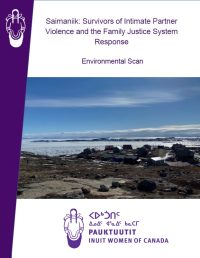
Saimaniik Environmental Scan
The environmental scan conducted for the Survivors of Intimate Partner Violence and the Family Justice System Response Project covers resources and services in each region of Inuit Nunangat and select urban centers, as well as at broader national, provincial, and territorial levels. It identifies existing resources for law practitioners and frontline workers supporting Inuit IPV survivors through the legal system, highlighting gaps and needs. The scan focuses on Inuit-specific or broadly relevant Indigenous Canadian resources, excluding non-Indigenous specific materials.
All actions undertaken should be grounded in evidence-based data to support responses. To ensure that the voices of Inuit women are heard, we support research, data collection, and environmental scans / gap analysis, in all projects.
Year Published February 2023
